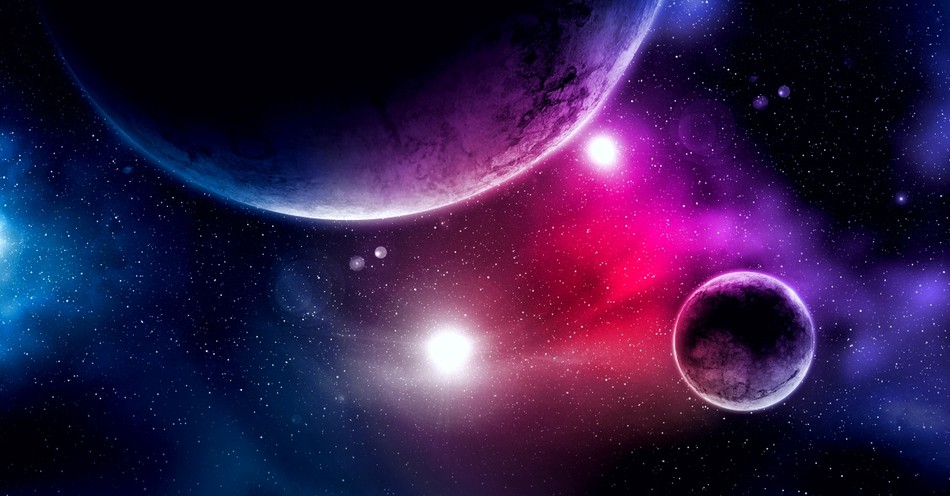The very first verse of the Bible, “In the beginning God created the heavens and the earth,” are far-reaching in their impact. It tells us much about God. It tells us about our surroundings. And it tells us about ourselves.
We can debate the age of the earth, we can debate how exactly God created the earth and in what timeframe, but this statement is the foundation of orthodoxy. God created. What are all of the implications of this?
1. In the Beginning
In recent days some have questioned whether we have translated this verse correctly. They would argue that this should be taken as a substantival clause and should be translated as, “When God began to create….” If taken this way, God would not have created ex nihilo (out of nothing), and this would not have been the beginning point of the universe.
I suppose this is linguistically plausible, but it’s not nearly definitive enough to overturn centuries of biblical interpretation by both Jewish and Christian interpreters.
The LXX, the Greek translation of the Old Testament, certainly viewed Genesis 1:1 in the traditional sense. We should read this as “in the beginning.”
What does that mean? It means that this creative act is when time/history began. It is, at this moment, that the universe came into being.
But if something has a beginning, then it must have a creator. There must be some outside source that brought this into being. Things do not simply pop into existence.
We can think of this with inventions. In the beginning, was the iPhone. In the beginning, was the lightbulb. In the beginning, was the automobile. When you see an iPhone, a lightbulb, an automobile, you’re likely thinking of inventors as well as the product itself.
In the same way, the Bible is written in such a way that when we start to tell the story of humanity, our fall, and our redemption, we would naturally connect the creation with the Creator.
2. God
Genesis makes the claim that God, the creator, later identified as YHWH, is the one who spoke creation into existence. From the very beginning, we see that while this is a story outlining our origin, it is fundamentally a story about God. Derek Kidner says it well,
“It is no accident that God is the subject of the first sentence of the Bible, for this word dominates the whole chapter and catches the eye at every point of the page: it is used some thirty-five times in as many verses of the story. The passage, indeed the Book, is about him first of all; to read it with any other primary interest (which is all too possible) is to misread it” (Genesis: An Introduction and Commentary).
This simple statement also tells us much about God. It tells us that God is powerful — maybe we can’t yet say that he is “all-powerful” simply from this verse, but certainly, one who can create the heavens and the earth has some serious power.
Secondly, this tells us that God is self-sufficient. In order to create, he must be outside of that creation. Light bulbs didn’t invent themselves. Thomas Edison had to stand outside the light bulb and bring them into existence.
And he had to have his existence separate from the thing which he was creating. In other words, if Edison required a lightbulb in order to invent the light bulb, we’d never have a lightbulb. In the same way, God doesn’t need creation in order to have existence.
Thirdly, God is other. This is similar to the second point but slightly different. Thomas Edison isn’t a light bulb. He stands outside the light bulb. That’s the nature of inventing a thing. And so, it is with God who has created the heavens and the earth out of nothing.
Lastly, God is involved. If we only had this verse, I suppose we could make the argument that this creator left us alone and now stands aloof from what was created. That’s possible if we only have this verse. But even here, it points to intentionality. It points to care and concern.
3. Created
I have used the illustration of inventions earlier in the article. This is not entirely accurate. In each instance, these inventors were working with material already there.
When God created the heavens and the earth, we read a few verses later that he did this while the earth was “formless” and “void.” Nothing and empty.
Though perhaps a bit technical, this comment from John Currid shows the difference and the importance of the Hebrew word used here:
“In ancient Hebrew a variety of words expressed the idea of ‘making’ or ‘forming.’ These words may have either God or mankind as the subject (e.g., 3:21; Exod. 38:1–3). The subject of the verb bārā’, however, is only and always God; the word is never used of an action of mankind (in the active Qal stem, as it appears here). The reason for this is that man cannot create ex nihilo, but only out of a pre-existent matter. The verb bārā’ was only used of God because only he could create that way (see Exod. 34:10; Isa. 65:17)” (A Study Commentary on Genesis: Genesis 1:1–25:18).
God created out of nothing. What did he create?
4. The Heavens and the Earth
This encompasses everything. There was no specific word for “universe” in the Hebrew language. To them, if you wanted to say “universe,” you would say “heavens and the earth.” Everything that was made was made by God.
This also means that there is not one square inch of the world for which God cannot declare, “this is mine” (I’m borrowing language here from Abraham Kuyper). Imagine I create a work of art.
Let’s say it’s a weird painting with a fork sticking into a baseball with fractured sunshine in the background. Strange, I know. Now somebody decides to tell everyone at an art show what this means.
They believe it’s a piece of artwork making a statement upon the chasm between a childhood dream and a middle-aged reality of broken dreams.
Sounds plausible. But as the author, I determine meaning. It doesn’t mean that. It means that I think baseball is in trouble because of the introduction of a pitch clock.
The creator gets to determine meaning. And the creator has authority over the creation. This means that God gets to call the shots. God determines meaning. God is our authority over everything.
Application for Today
Whenever I share the gospel with someone, I almost always begin with creation. We can’t understand the Fall without understanding creation. What God created was good.
And God, as Creator, establishes His rights over us. From this, we can then share what God expects of us, how we do not match up to His perfection, and then show how He graciously has provided a redeemer.
From the beginning verse, God is telling the story of redemption. He is telling us that He is good and that creation is good.
And He is showing us the beauty with which He created us and the beauty which He created all around us. But He also tells us the reality of our rebellion and ruin. This points to His grand redemption.
This is why the Gospel of John begins similar to the creation narrative. In the beginning, was the Word…
Jesus fixes what we’ve broken.
For further reading:
Why Did God Say, 'Let There Be Light'?
What Is the Creation Story in the Bible?
What Happened on Each Day of Creation?
Photo Credit: ©iStock/Getty Images Plus/cemagraphics
Mike Leake is husband to Nikki and father to Isaiah and Hannah. He is also the lead pastor at Calvary of Neosho, MO. Mike is the author of Torn to Heal and Jesus Is All You Need. His writing home is http://mikeleake.net and you can connect with him on Twitter @mikeleake. Mike has a new writing project at Proverbs4Today.



